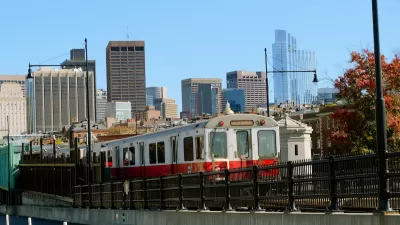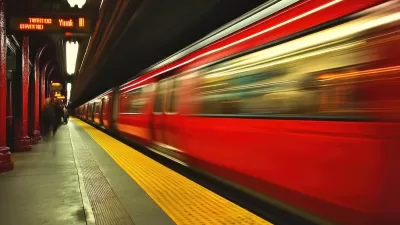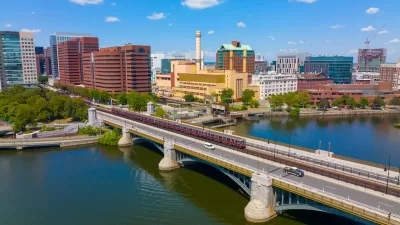Boston commuters report frustrations with a lack of parking at stations along the system—so much so that they sometimes abandon hope of finding a spot or catching a train.
"The struggle to find parking [at MBTA stations] is discouraging some commuters from using public transit," according to an article by Nicole Dunga.
Dunga shares the statistics at the center of the problem: "As of late January, the T owned nearly 49,600 parking spots across the state, compared to the nearly 1.3 million rides it provides on a typical weekday. While it is difficult to know exactly how many parking spaces are needed by commuters, it is clear to some of them that the demand outpaces supply at several stations."
Despite the addition of three new parking structures at stations in the system, parking is still scarce throughout the system and one station, Quincy Center, had to permanently shut its parking garage in 2012 because of structural damage.
Dunga also quotes UCLA Professor Donald Shoup to explain the potential impacts of parking shortages on a transit system. According to Shoup, "[it's] terrible to have a full parking lot determine the success of a transit system and the value of using transit."
Similar parking shortages have been reported at suburban stations of the BART system in the San Francisco Bay Area. A one dollar fee for parking was recently implemented at some stations that had been free since the system opened in 1972.
FULL STORY: Parking struggle discouraging some from using MBTA

Planetizen Federal Action Tracker
A weekly monitor of how Trump’s orders and actions are impacting planners and planning in America.

Restaurant Patios Were a Pandemic Win — Why Were They so Hard to Keep?
Social distancing requirements and changes in travel patterns prompted cities to pilot new uses for street and sidewalk space. Then it got complicated.

Map: Where Senate Republicans Want to Sell Your Public Lands
For public land advocates, the Senate Republicans’ proposal to sell millions of acres of public land in the West is “the biggest fight of their careers.”

Maui's Vacation Rental Debate Turns Ugly
Verbal attacks, misinformation campaigns and fistfights plague a high-stakes debate to convert thousands of vacation rentals into long-term housing.

San Francisco Suspends Traffic Calming Amidst Record Deaths
Citing “a challenging fiscal landscape,” the city will cease the program on the heels of 42 traffic deaths, including 24 pedestrians.

California Homeless Arrests, Citations Spike After Ruling
An investigation reveals that anti-homeless actions increased up to 500% after Grants Pass v. Johnson — even in cities claiming no policy change.
Urban Design for Planners 1: Software Tools
This six-course series explores essential urban design concepts using open source software and equips planners with the tools they need to participate fully in the urban design process.
Planning for Universal Design
Learn the tools for implementing Universal Design in planning regulations.
Heyer Gruel & Associates PA
JM Goldson LLC
Custer County Colorado
City of Camden Redevelopment Agency
City of Astoria
Transportation Research & Education Center (TREC) at Portland State University
Camden Redevelopment Agency
City of Claremont
Municipality of Princeton (NJ)





























